Listed below are our most recent news posts. You can also view our News Archive, containing posts from 2020 until present.
 The CFA would like to welcome A Woodland & Son Flooring Specialists Ltd, a new Contractor Member from Nottinghamshire.
The CFA would like to welcome A Woodland & Son Flooring Specialists Ltd, a new Contractor Member from Nottinghamshire.
 The CFA would like to welcome Granorte UK Limited, a new Manufacturer Member from Telford, Shropshire.
The CFA would like to welcome Granorte UK Limited, a new Manufacturer Member from Telford, Shropshire.
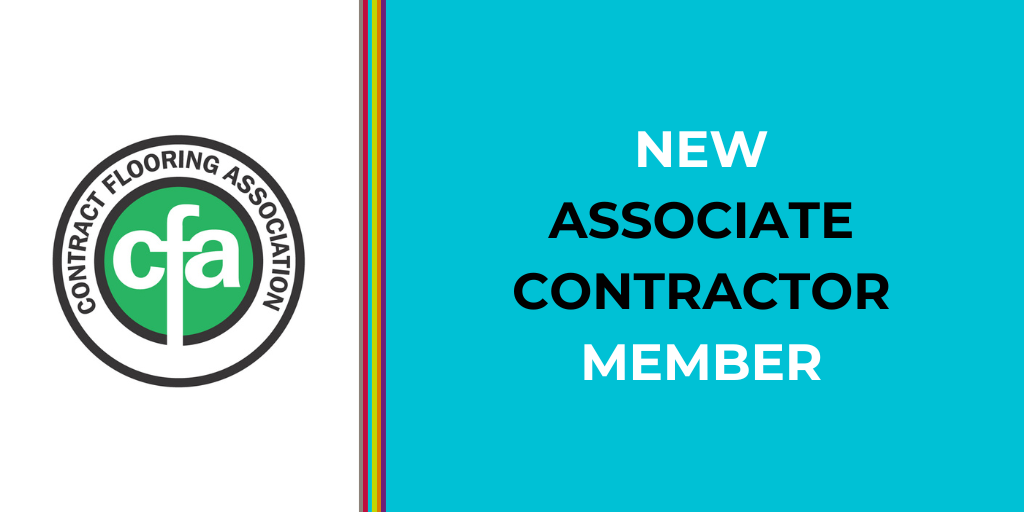 The CFA would like to welcome Floortech Contracts Limited, a New Associate Contractor Member from Chelmsford in Essex.
The CFA would like to welcome Floortech Contracts Limited, a New Associate Contractor Member from Chelmsford in Essex.
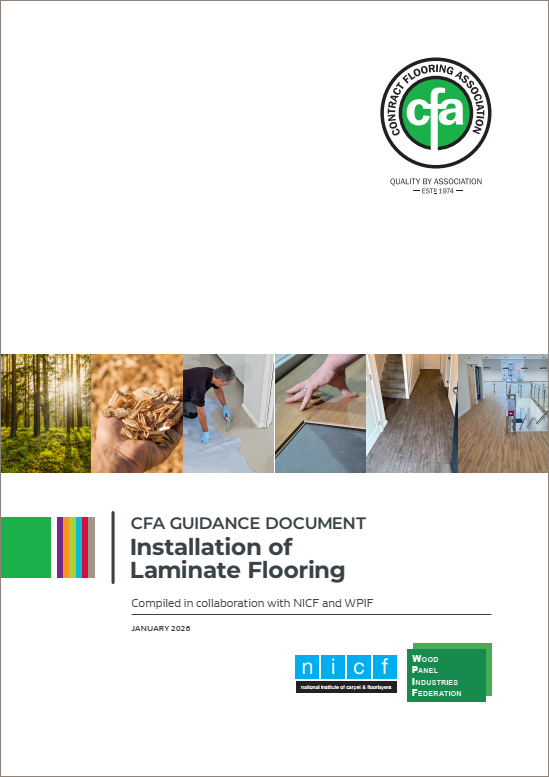 The CFA is pleased to launch new guidance on the installation of laminate flooring. The document was produced in collaboration with the National Institute or Carpet & Floorlayers (NICF) and the Wood Panel Industries Federation (WPIF) following the withdrawal of BS 8425 and CEN/TS 14472-part 3. Its purpose is to give clear and practical direction for a flooring category that has seen strong growth across both homes and commercial buildings.
The CFA is pleased to launch new guidance on the installation of laminate flooring. The document was produced in collaboration with the National Institute or Carpet & Floorlayers (NICF) and the Wood Panel Industries Federation (WPIF) following the withdrawal of BS 8425 and CEN/TS 14472-part 3. Its purpose is to give clear and practical direction for a flooring category that has seen strong growth across both homes and commercial buildings.
The publication brings together requirements on design, substrate preparation and installation practice and aligns these with current British Standards where appropriate. With more laminate floors being specified for their appearance, durability and ease of upkeep, the new guidance sets out what good practice should look like from the first design conversations through to completion checks and maintenance for the end user.
Subjects covered include substrate moisture testing, surface regularity, underlay selection, underfloor heating and the responsibilities of the different parties involved in a project. The document places particular emphasis on early dialogue between suppliers, installers and clients, noting that many floor failures can be avoided when substrate condition and moisture control are properly understood.
The launch has been well received in the flooring and timber sectors, with industry figures noting that the guidance fills a long-standing gap and should support higher installation standards and fewer disputes across the supply chain.
The guidance is a member only publication and for CFA members can be accessed through the downloads section and also the member area of our website. It is expected to serve as a reference for training and for future updates to national standards. Members should contact us at info@cfa.org.uk if they do not have a member area login but wish to access the document.
 We have been made aware of 2 spam emails being sent to CFA members and wish to bring them to your attention.
We have been made aware of 2 spam emails being sent to CFA members and wish to bring them to your attention.
The particular emails that have come to our attention have been distributed from jennifer@success-leads.live and aurora@successmatrix.live although there may be other alternative emails in circulation from these companies - please see the graphics at the bottom of this notification.
We can confirm that the CFA is NOT working with or in partnership with these senders or the related businesses. We want to reassure you that we do not generally share the CFA membership list with any third parties and should we ever enter into any partnerships with a third party for a project, we would ensure that members were made aware of this in advance.
The CFA always takes action when members receive spam or spurious emails and can confirm that we have issued the senders of the spam/scam a cease and desist instruction.
PLEASE IGNORE AND DELETE THESE EMAILS FROM YOUR SYSTEM, as well as any follow-up versions. We would ask that you make sure that relevant personnel within your company are made aware that these are not genuine emails.
You can register spam emails with the ICO: https://ico.org.uk/make-a-complaint/nuisance-calls-and-messages/spam-emails/report-spam-emails/ or with Action Fraud.
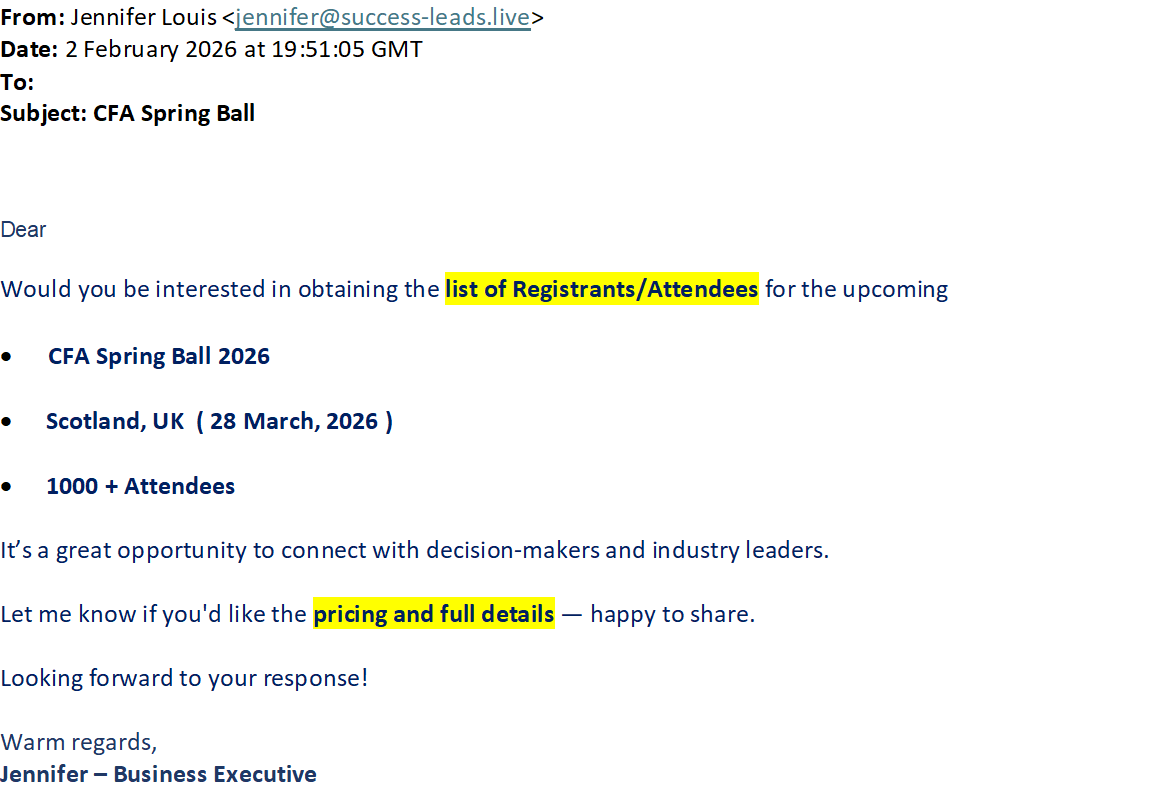
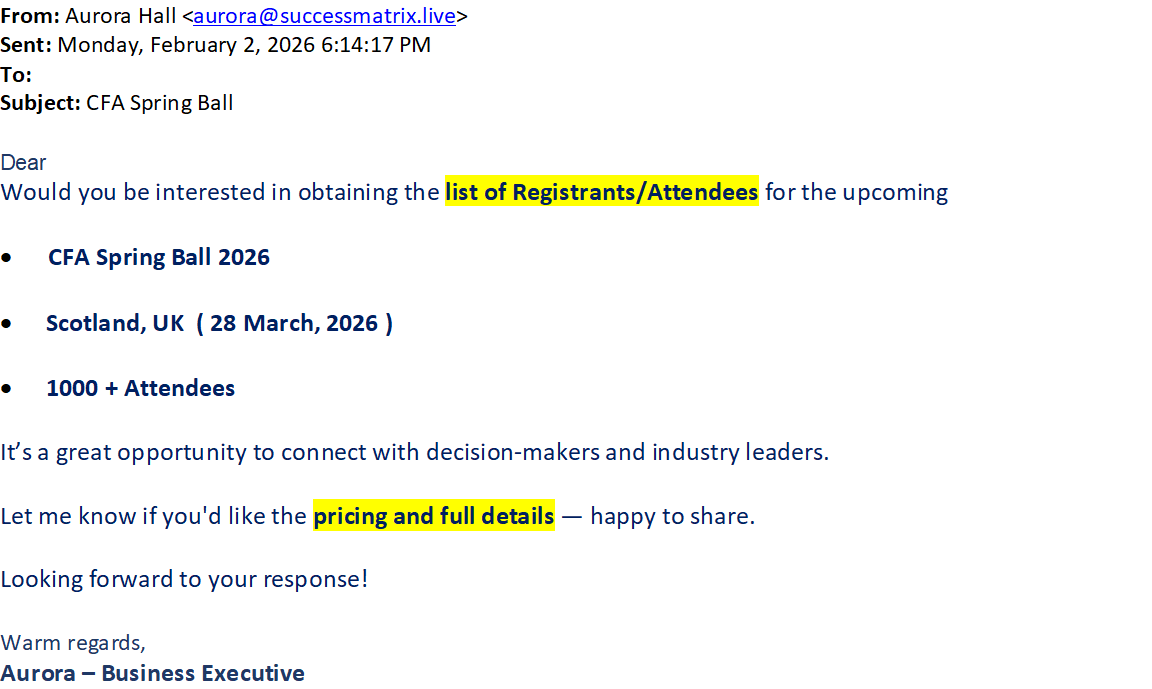
The Government has confirmed changes to the Construction Industry Scheme (CIS) to strengthen HMRC’s power to tackle fraud. From 6 April 2026, any business that knew or should have known that payments made or received were connected with fraudulent evasion of tax could immediately lose their Gross Payment Status and be liable for a penalty of up to 30% of the lost tax.
 The Government has published its Warm Homes Plan, which sets out £15 billion of investment to upgrade the energy efficiency of up to five million homes, representing a significant pipeline of publicly?funded retrofit work. With home insulation rates decreasing by more than 90% from 2010 - 2024, the plan has three delivery strands or ‘pillars’:
The Government has published its Warm Homes Plan, which sets out £15 billion of investment to upgrade the energy efficiency of up to five million homes, representing a significant pipeline of publicly?funded retrofit work. With home insulation rates decreasing by more than 90% from 2010 - 2024, the plan has three delivery strands or ‘pillars’:
Delivery of the Warm Homes Plan will be overseen by a new Warm Homes Agency combining the delivery functions of Ofgem, Salix and the Department for Energy Security and Net Zero. There will also be additional funding for the Heat Training Grant to support the upskilling of heating engineers, with a new Warm Homes Skills Programme for other qualifications in solar panels, insulation and assessment.
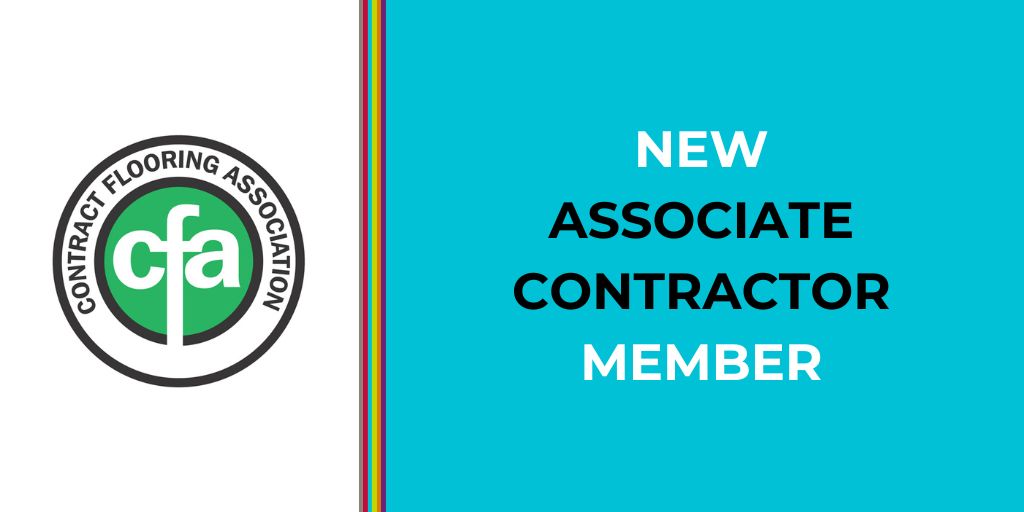 The CFA would like to welcome Anglia Commercial Flooring Limited, a new Associate Contractor Member from Ipswich.
The CFA would like to welcome Anglia Commercial Flooring Limited, a new Associate Contractor Member from Ipswich.
 We have been made aware of 2 spam emails being sent to CFA members and wish to bring them to your attention.
We have been made aware of 2 spam emails being sent to CFA members and wish to bring them to your attention.
The particular emails that have come to our attention have been distributed from imani14.richardson@gmail.com and indie.67ruiz@gmail.com although there may be other alternative emails in circulation from these companies - please see the graphics at the bottom of this notification.
We can confirm that the CFA is NOT working with or in partnership with these senders or the related businesses. We want to reassure you that we do not generally share the CFA membership list with any third parties and should we ever enter into any partnerships with a third party for a project, we would ensure that members were made aware of this in advance.
The CFA always takes action when members receive spam or spurious emails and can confirm that we have issued the senders of the spam/scam a cease and desist instruction.
PLEASE IGNORE AND DELETE THESE EMAILS FROM YOUR SYSTEM, as well as any follow-up versions. We would ask that you make sure that relevant personnel within your company are made aware that these are not genuine emails.
You can register spam emails with the ICO: https://ico.org.uk/make-a-complaint/nuisance-calls-and-messages/spam-emails/report-spam-emails/ or with Action Fraud.


 The latest data on Gateway Two applications published by the Building Safety Regulator (BSR) for the period 25 November to 22 December 2025 shows progress made with the backlog of applications and the Innovation Unit. There were 347 decisions across all application types in this period, taking the total to 727 decisions since 29 September 2025.
The latest data on Gateway Two applications published by the Building Safety Regulator (BSR) for the period 25 November to 22 December 2025 shows progress made with the backlog of applications and the Innovation Unit. There were 347 decisions across all application types in this period, taking the total to 727 decisions since 29 September 2025.
For applications submitted under the previous model, the approval rate now stands at 83%, up from 73%, with a further 20 decisions made during this period. However, there are still 40 ‘legacy’ new build applications awaiting decisions, which the BSR was intending to have reduced to three by the end of 2025. The Innovation Unit is currently managing 102 live new build applications. Of those applications that have received a decision from the Innovation Unit to date, 48% were deemed invalid as not all the required documentation was provided. Build UK’s guide to Gateway Two sets out the information that must be included within applications for both new and existing Higher-Risk Buildings (HRBs).
The Government has published guidance to the Fire Safety (Residential Evacuation Plans) (England) Regulations, which will come into force on 6 April 2026. The guidance supports Responsible Persons to develop and implement Residential Personal Emergency Evacuation Plans (PEEPs) in all high-rise residential buildings, and in medium-rise buildings which have an evacuation strategy in place.
The Ministry of Housing, Communities and Local Government (MHCLG) is launching a quarterly building safety newsletter, which will include updates on legislation, guidance and remediation progress, and members can sign up to receive it.
The national regulator for construction products, the Office for Product Safety and Standards (OPSS), is looking for experts to join its Register of Specialists. The register will be used to commission ad-hoc scientific work to support the OPSS, and anyone with knowledge and expertise in civil and structural engineering, fire science, materials science, and associated disciplines is encouraged to apply.
 The Government is consulting on further changes to the National Planning Policy Framework (NPPF), which sets out its planning policies for England and how they will be applied. By making the NPPF more ‘rules-based’ and simpler to use, the Government is aiming to accelerate its ambition to build 1.5 million new homes, and the key proposals include:
The Government is consulting on further changes to the National Planning Policy Framework (NPPF), which sets out its planning policies for England and how they will be applied. By making the NPPF more ‘rules-based’ and simpler to use, the Government is aiming to accelerate its ambition to build 1.5 million new homes, and the key proposals include:
The deadline for responding to the consultation is Tuesday 10 March and members can respond online. In addition to the changes to the NPPF, the Government has confirmed that it will introduce an exemption from Biodiversity Net Gain (BNG) requirements for small sites up to 0.2 hectares. Its full response to the BNG consultation held last year will be published in due course.
 The Planning and Infrastructure Bill received Royal Assent on 18 December 2025, with a number of the new measures coming into force with immediate effect.
The Planning and Infrastructure Bill received Royal Assent on 18 December 2025, with a number of the new measures coming into force with immediate effect.
The new Act is key to meeting the Government’s targets for homes and major infrastructure, and Ministers will confirm in due course when the remaining reforms will take effect.
 Ahead of the Christmas break, CITB announced significant changes to the grants and funding available to employers, which take effect from today (8 January). With the demand for financial support due to exceed the Levy paid by employers, apprenticeship grants will be maintained but there are wide?ranging changes to other funding, including:
Ahead of the Christmas break, CITB announced significant changes to the grants and funding available to employers, which take effect from today (8 January). With the demand for financial support due to exceed the Levy paid by employers, apprenticeship grants will be maintained but there are wide?ranging changes to other funding, including:
Large employers will not be supported via Employer Networks after 31 March, with a new large employer fund to be introduced from 1 April.
Any training booked before 8 December 2025 which takes place between 8 January and 31 March 2026 will be eligible for the previous grant rates where evidence is provided. Large employers should ensure any training booked via Employer Networks is completed by 31 March 2026. Further information on all the changes can be found in these FAQs and a series of webinars hosted by CITB.
We have been made aware of 3 spam emails being sent to CFA members and wish to bring them to your attention.
The particular emails that have come to our attention have been distributed from anna@sucesshub.services, serlin@sccessmetrics.services and lilith@successebox.live although there may be other alternative emails in circulation from these companies - please see the graphics at the bottom of this notification.
We can confirm that the CFA is NOT working with or in partnership with these senders or the related businesses. We want to reassure you that we do not generally share the CFA membership list with any third parties and should we ever enter into any partnerships with a third party for a project, we would ensure that members were made aware of this in advance.
The CFA always takes action when members receive spam or spurious emails and can confirm that we have issued the senders of the spam/scam a cease and desist instruction.
PLEASE IGNORE AND DELETE THESE EMAILS FROM YOUR SYSTEM, as well as any follow-up versions. We would ask that you make sure that relevant personnel within your company are made aware that these are not genuine emails.
You can register spam emails with the ICO: https://ico.org.uk/make-a-complaint/nuisance-calls-and-messages/spam-emails/report-spam-emails/ or with Action Fraud.

.png)
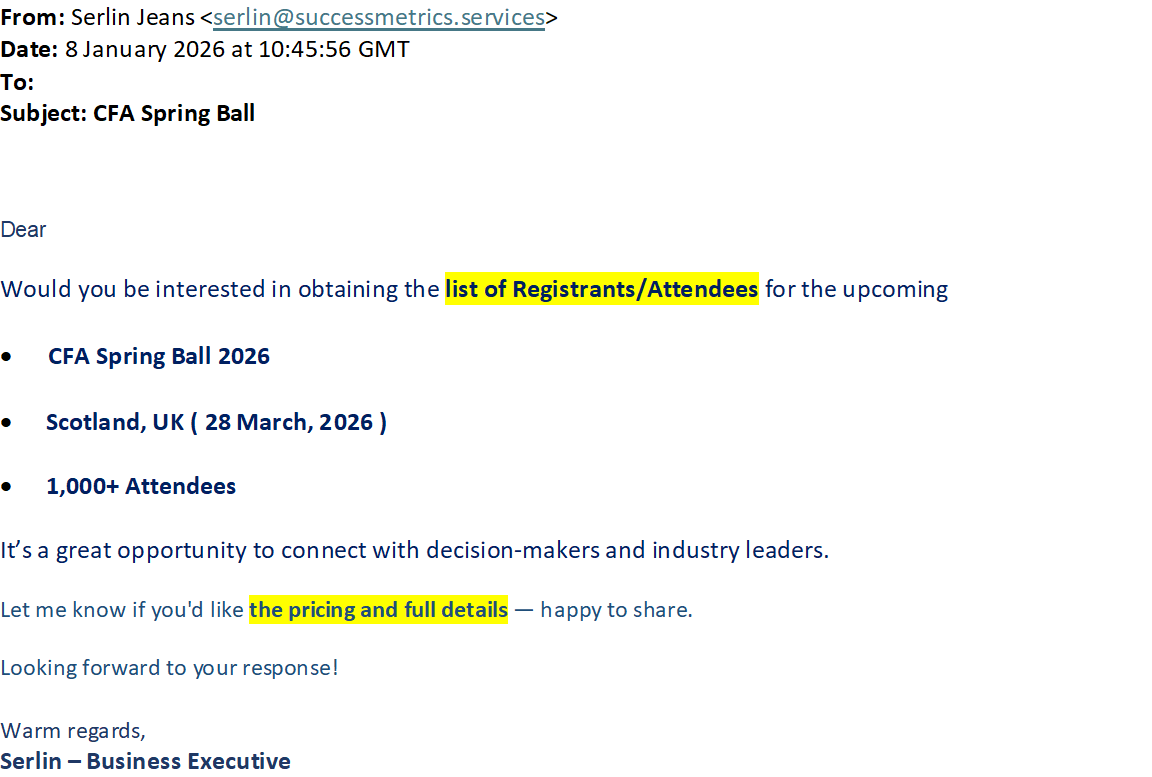
 The CFA would like to welcome Specialist Flooring Group Limited, a new Contractor Member from Maidstone.
The CFA would like to welcome Specialist Flooring Group Limited, a new Contractor Member from Maidstone.
Transport for London has announced a number of changes to the London Congestion Charging scheme from 2 January 2026, including an increase in the daily charge from £15 to £18. The Cleaner Vehicle Discount will also be replaced with a discount on the daily charge of 50% for electric vans, HGVs and quadricycles and 25% for electric cars registered for Auto Pay.
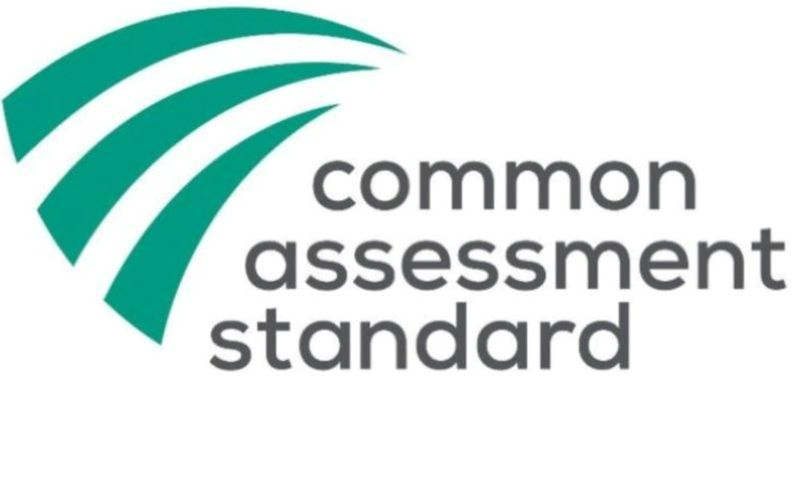 The seven Recognised Assessment Bodies for the Common Assessment Standard – Achilles, Compliance Chain, Constructionline, CQMS, SCCS, Smas Worksafe, and Veriforce CHAS – are reviewed every year to ensure their competency. They have all successfully completed this process for another 12 months, meaning suppliers can continue to obtain the Common Assessment Standard from any one of them.
The seven Recognised Assessment Bodies for the Common Assessment Standard – Achilles, Compliance Chain, Constructionline, CQMS, SCCS, Smas Worksafe, and Veriforce CHAS – are reviewed every year to ensure their competency. They have all successfully completed this process for another 12 months, meaning suppliers can continue to obtain the Common Assessment Standard from any one of them.
Last week’s Budget introduced a number of changes to apprenticeship funding. From the next academic year, the 10% top?up that Apprenticeship Levy payers receive will be withdrawn and funds will only be available for 12 months once paid into a Levy account, rather than the 24 months that employers currently have to use up their funds.
In addition, once an employer’s Levy funds have been spent, the Government’s contribution to further training costs will drop from 95% to 75%, increasing the cost to employers from 5% to 25%. Non?Levy payers will no longer have to contribute 5% to the cost of apprenticeships for learners aged 22 ? 24.
Congratulations to Marion Marsland, Chief Executive of Build UK member TICA, who has been appointed the new Chair of the CSCS Alliance, which brings together the 37 card schemes that carry the CSCS logo. With experience overseeing the TICA Skill Card, which is part of the CSCS Alliance, Marion will serve a two-year term as Chair, with the option of a further two?year extension.
 The CFA would like to welcome Screedfast Limited, a New Contractor Member from Kent.
The CFA would like to welcome Screedfast Limited, a New Contractor Member from Kent.
 The CFA would like to welcome back Central Flooring Services Limited, a Contractor Member from Leicestershire.
The CFA would like to welcome back Central Flooring Services Limited, a Contractor Member from Leicestershire.
The Government has published The Construction Products (Amendment) Regulations 2025 to ensure that CE?marked construction products will continue to be accepted as an alternative to the UKCA mark in Great Britain, following the introduction of the EU CPR 2024. The new regulations, which will come into force from 8 January 2026, will not impose any new requirements on either manufacturers or the supply chain.
From Tuesday 18 November, it will be a legal requirement for company directors to verify their identity with Companies House in order to submit their company’s next confirmation statement. It follows the introduction of the Economic Crime and Corporate Transparency Act to improve transparency over UK companies and tackle economic crime.
Individuals can verify their identity by supplying the evidence requested via their GOV.UK One Login or an Authorised Corporate Service Provider (ACSP). Anyone using their GOV.UK One Login will need a mobile phone with a working camera and photo ID such as a driving licence or passport. The process should take around 10 minutes and verified individuals will receive a personal code which they can use for each company they are a director of.
Companies House has announced that a number of its fees will be changing from 1 February 2026. These include the confirmation statement digital filing fee increasing from £34 to £50, the incorporation digital filing fee doubling from £50 to £100, and the digital voluntary strike off fee being reduced from £33 to £13. Details of all the changes can be found on the Companies House website.
 The CFA would like to welcome T W Betts Flooring Limited, a new Contractor Member from Dagenham.
The CFA would like to welcome T W Betts Flooring Limited, a new Contractor Member from Dagenham.
 The CFA would like to welcome Towergate Insurance Brokers Ltd, a new Specialist Consultant Member from London.
The CFA would like to welcome Towergate Insurance Brokers Ltd, a new Specialist Consultant Member from London.
 The CFA would like to welcome B2B Flooring Limited, a new Contractor Member from Fife in Scotland.
The CFA would like to welcome B2B Flooring Limited, a new Contractor Member from Fife in Scotland.
 CITB has developed a new online portal to make it easier for employers to access the CITB Grants Scheme. CITB Online Services now allows employers to submit and manage applications for Apprenticeship, Qualification and Short Course grants, which could previously only be applied for via email, as well as submit their Levy Return.
CITB has developed a new online portal to make it easier for employers to access the CITB Grants Scheme. CITB Online Services now allows employers to submit and manage applications for Apprenticeship, Qualification and Short Course grants, which could previously only be applied for via email, as well as submit their Levy Return.
The online portal enables employers to save draft grant applications and track when they have been processed, as well as control who within their business has access to the information. Employers who already have a Levy or Grant account with CITB can use their existing details to log in without registering again, although Levy and Grant access are requested separately so employers who only have Levy access will need to ‘request access to your employer’ and select Grant access in order submit grant applications.
CITB has published a range of guidance on signing up to and using the portal, and further support is available from your local CITB adviser. Whilst the existing route of submitting grant applications via email will remain available for the time being, CITB is encouraging all employers to start using CITB Online Services going forwards.
 We would like to remind members that there are now just six weeks to go until all CSCS cards obtained via Industry Accreditation expire on 31 December and that they should have a plan in place to move workers onto the relevant card as soon as possible. CSCS has issued guidance on replacing Blue, Gold and Black Industry Accreditation cards, and there are increased CITB grant rates available for workers achieving certain S/NVQs to replace cards.
We would like to remind members that there are now just six weeks to go until all CSCS cards obtained via Industry Accreditation expire on 31 December and that they should have a plan in place to move workers onto the relevant card as soon as possible. CSCS has issued guidance on replacing Blue, Gold and Black Industry Accreditation cards, and there are increased CITB grant rates available for workers achieving certain S/NVQs to replace cards.
CSCS does not issue cards for non?construction occupations and any workers who are no longer undertaking a recognised construction occupation on site do not require a CSCS card.
CSCS has also announced that the initial validity of a Labourer card will be reduced from five to two years from 1 February 2025 to encourage more new entrants to start on the appropriate Red card with a recognised training pathway. Any operatives who continue in a labouring role will be able to renew their card for five years by providing evidence that they are employed as a labourer.
 We have today been notified by the CLC (Construction Leadership Council) that the The Minister for Building Safety and Homelessness has made a statement regarding CE Marking for construction products.
We have today been notified by the CLC (Construction Leadership Council) that the The Minister for Building Safety and Homelessness has made a statement regarding CE Marking for construction products.
The statement announces an extension of the recognition of CE marking for construction products in Great Britain.
This extension, as well as the longer-term future of CE/UKCA marking, is conditional on a commitment from the Government to system wide reform of the construction products regulatory regime. The full announcement can be viewed here.
In summary this means that:
• CE marking will be accepted past 30 June 2025 for construction products.
• The Government has committed to system wide construction product regulatory reform.
• UKCA marking will remain a valid and accepted regulatory mark.
• The Government will explore the long-term future of CE/UKCA marking as part of this regulatory reform.
• Any subsequent changes to the recognition of CE marking would be subject to a minimum 2-year transitional period.
• The Government will engage with UK Conformity Assessment Bodies, the UK Accreditation Service, and the wider industry to strengthen the conformity assessment market.
The Statement also makes announcements in relation to National Classes fire testing standards.
Source: CLC (2.9.2024)
 We are delighted to publish a new member only document our Guidance Note on Moisture Measurement – In-Situ Probe Method. This is now available via the members area of the CFA website www.cfa.org.uk.
We are delighted to publish a new member only document our Guidance Note on Moisture Measurement – In-Situ Probe Method. This is now available via the members area of the CFA website www.cfa.org.uk.
Following concerns raised by industry regarding moisture testing using the sleeve/probe method, work began on the guidance note in December 2022 with the formation of a working group. Whilst the changes proposed were relatively simple, the technical research to support them was discussed in detail, as was the format, and some additional critical parameters. The final document was approved for publication in June 2024.
Richard Catt (CFA CEO) commented: “This is a really important update that ensures a better understanding of the moisture condition of a subfloor. I am delighted that the CFA has been able to facilitate and deliver this work for industry.”
The CFA would like to take this opportunity to thank all those members who have been involved in the project for their hard work and support.
 The CFA’s recently launched Clear Our Workspace campaign toolkit is available for members to view and download from the CFA website member area.
The CFA’s recently launched Clear Our Workspace campaign toolkit is available for members to view and download from the CFA website member area.
This initiative is designed specifically to address a significant challenge faced by our contractor members - maintaining clear and accessible workspaces on multi-trade sites.
Central to this campaign is the CFA principle of the “responsible no”, supporting members in occasionally making the tough decision to delay installation if site conditions are not suitable.
Building on the success of our first site conditions campaign “Winter Warning” (developed to helps members to achieve adequate heating on sites during the colder months) the new “Clear Our Workspace” campaign tackles another critical area: clear workspaces and uncontaminated subfloors. Every UK flooring contractor knows the frustration of working in environments where multiple trades overlap, leading to cluttered workspaces and contaminated subfloors. Such conditions not only hinder productivity but also jeopardise the quality and integrity of flooring installations. This latest campaign offers a comprehensive response to this widespread issue.
The Clear Our Workspace toolkit has several key resources to help raise awareness and foster better collaboration from main contractors and other trades on-site. Among these resources are a site poster, which can be printed and displayed on notice boards ensuring that all trades are aware of the requirements for a successful flooring installation.
The full kit includes the site poster/flyer, an email footer for members to add to their emails to highlight the importance of clear workspaces, and section 2 of the CFA Guide to Contract Flooring that applies. We have also created some tea/coffee coasters for members to use as giveaways for clients to help raise awareness. Members can obtain these by emailing info@cfa.org.uk or calling 0115 941 1126 - please note supplies are limited and so will be allocated on a first come first served basis.
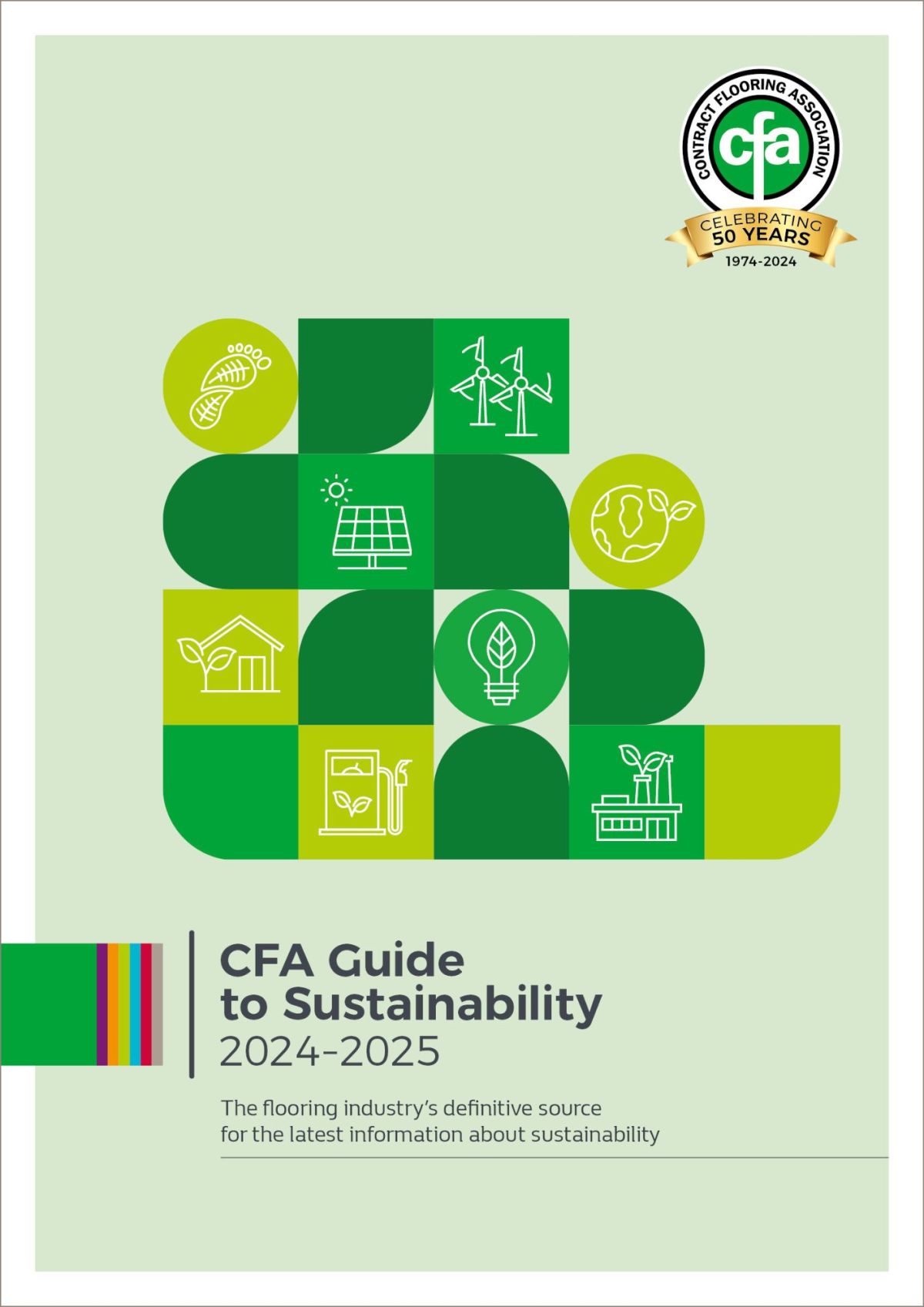 We are delighted to publish our digital 2024/2025 Guide to Sustainability. This annual publication highlights key information, products, services and case studies, and is fast becoming more and more important as a reference document for our sector. It aims to help anyone with a current flooring project (with sustainability at its heart) to deliver best practice. At the same time, it provides some thought leadership pieces around the future of sustainability in the commercial flooring sector.
We are delighted to publish our digital 2024/2025 Guide to Sustainability. This annual publication highlights key information, products, services and case studies, and is fast becoming more and more important as a reference document for our sector. It aims to help anyone with a current flooring project (with sustainability at its heart) to deliver best practice. At the same time, it provides some thought leadership pieces around the future of sustainability in the commercial flooring sector.
Returning to its roots as a guide, there is a very practical article on ways that contractors can improve their green credentials outside of installing sustainable products. A whole list of accessible actions and improvements that make both environmental and business sense. Doing the right thing, whilst at the same time making a flooring contractor more attractive as a supply chain partner to work with.
Included in the Guide is an update on the CISUFLO project https://www.cisuflo.eu/. Our work has really begun to gain momentum and we are supporting trials of a circular broadloom carpet. It’s an incredibly interesting project that has many threads including design for circular products and tagging materials so that they can be identified at the end of life and recycled. Tagging concepts have included bar codes and other electronic tags read by scanning the floor with something such as an RFID reader that will provide data such as the manufacturer, design and how they can be recycled. A product passport if you like.
All of the content has a wide reach and audience and we would like to thank everyone who contributed.
Here we have our full archive of previous news posts available to view in date-order.